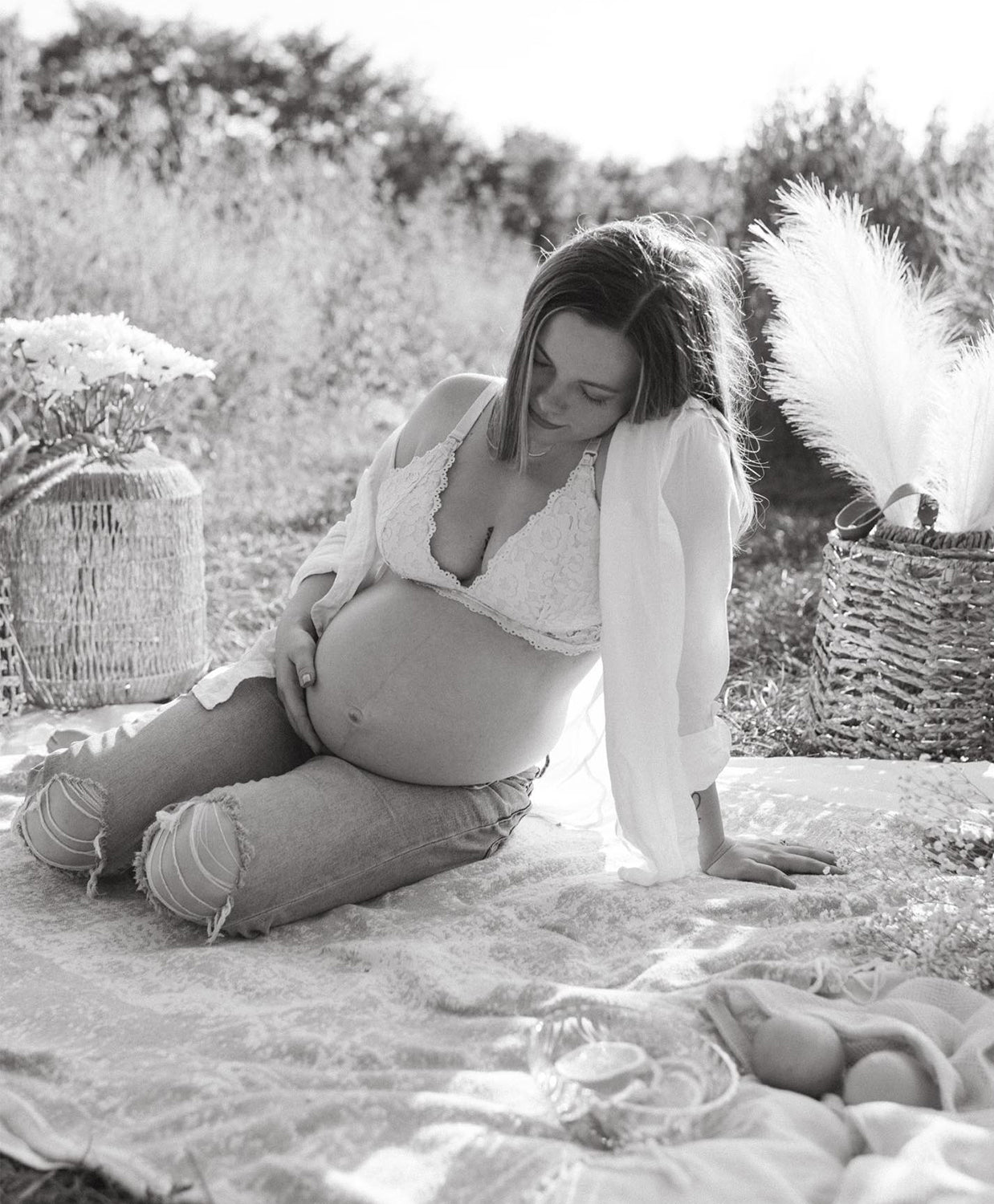Is it Normal to Feel Sad When You Breastfeed?

Breastfeeding went off without a hitch at the start. My baby latched like a natural, and I had no problems with my supply. However, a day or so later, just before I fed my little one, I got a sinking feeling in the pit of my stomach. I really don’t know how to explain it; it felt like I was homesick, and it made me extremely sad. This feeling lasted for some time, then went away on its own. It was very bizarre and unlike anything I had ever heard of before then.
I had my baby boy last spring. I had wanted to become a mom for so long, so finally having my baby was a dream come true for me. And just like many other women, I planned to exclusively breastfeed for at least 6 months. I know breastfeeding is a real cause of anxiety for many women, but to be honest, I wasn’t really worried about it. I was just so excited about my motherhood journey!
I thought it was a one-time thing, but I was wrong. That sensation came back at my next feed, and for every feed after that. It would start as soon as my letdown reflex was triggered and disappear on its own after a few minutes. I remember thinking to myself that it must be a sign of sleep deprivation because I hadn’t been sleeping well during those first few weeks. Or perhaps I had the baby blues? But it felt nothing like what I had read baby blues symptoms would be like. I was just so lost. A part of me had me convinced that it was all in my head, so I told no one; not even my partner.
After weeks of dealing with this sensation and hoping it would go away on its own, I finally had enough. I dove down rabbit hole after rabbit hole online until I found other women who were going through the same thing I was. They described having the same sensation I was, right before every feed. And I could finally put a name to what I was going through; DMER, or dysphoric milk ejection reflex.
What is DMER?
DMER is a recently recognized condition that was first coined in 2007 by Alia Heise. It affects lactating moms and is caused by the hormonal changes that occur shortly before breastmilk letdown.
According to Alia Heise, DMER is a milk ejection reflex anomaly that causes a brief but intense feeling of dysphoria. It is often experienced right before the milk is released from the breast. Alia Heise is a lactation consultant who suffered from the condition herself.
DMER is a poorly understood condition. Alia Heise and other experts on the subject believe it is a physical condition, not a psychological one. When a woman breastfeeds, dopamine levels (feel-good hormone) decrease while prolactin levels (milk-producing hormone) increase.
Sometimes, this drop in dopamine is excessive, which results in symptoms like anger, despair, anxiety, sadness, and self-loathing.
Many studies have shown that low dopamine levels can lead to low moods and negative emotional responses. This further suggests that the sudden change in dopamine levels could be the underlying cause of DMER.
It is also important to point out that DMER often occurs on a spectrum. Different women will experience different symptoms to different degrees of intensity. Some women will become angry while others will become anxious or sad. These experiences will also differ in duration. For some women, the condition will resolve itself within a few weeks. For others, the symptoms can last for a year or more.

Will your DMER go away on its own?
Some women have found that DMER gets better with time, subsiding as their babies grow or disappearing completely once breastfeeding has been established.
Me, I found that over the first few weeks, it happened with every feeding. It then started happening less and less before disappearing almost entirely. Today, the feeling is mostly gone, although I will experience it once in a while especially when I wait too long before feeding or pumping.
When I did my research on online forums, I found that for some women, it never stops, but the sensations get less intense over time. This goes on for as long as they breastfeed and only stops once weaning is complete.
If you are dealing with very intense DMER sensations, experts recommend that you try to make breastfeeding a more pleasant experience for you. You can employ several self-soothing techniques like distracting yourself with your favorite show, deep breathing, sitting with your partner as you experience it, and so on. Doing this will help you push through it and recover faster.
I also cannot recommend finding an online DMER support group enough. It will give you access to people that you can talk to who are going through exactly the same things as you are. A lot of these women have unique strategies that help them cope that they can recommend.
If you think the sensations are too severe, or if you are also experiencing thoughts of harming yourself or your baby, you will need to consult your doctor as soon as possible. Your DMER could be exacerbating a more serious condition like postpartum depression. Your doctor will be able to provide you with personalized assistance on how best to proceed.
📌Should you wean your Baby if you have DMER?
When my DMER was at its worst, I started dreading breastfeeding my son. I had this crippling fear of experiencing that horrible sensation. I felt like it was really messing with my mind, and I could tell that DMER was emotionally damaging me. I cannot tell you how many times I thought it might be best for me to simply not breastfeed my baby anymore.
Everyone says that breastfeeding is a wonderful bonding experience between a mom and her child. They say it is the most natural thing in the world. Hearing all of that made me think that there had to be something I was doing wrong. I mean, how could it not? Breastfeeding was torture for me, yet it was supposed to be this beautiful thing.
The one thing that helped me was being able to put a name to what I was going through. I knew it was temporary and things would improve eventually. That’s what got me through it, and I did end up breastfeeding my son for the full recommended 6 months.
Because DMER goes away when you stop breastfeeding, some experts may recommend early weaning in very extreme cases. When the risks to the mother are worse than not breastfeeding, early weaning may be the only solution. It is also important to know that if you had DMER with your first child, you will also likely have it with your subsequent children. That’s why it is important to prepare mentally and emotionally, just in case.
📌How to support women with DMER
As mentioned earlier, women with DMER experience a severe dip in their mood during the milk letdown process. The sensation fades after the letdown reflex is over, and on average, those feelings last for a few minutes. However, you might get these sensations every time you let down your milk. For a breastfeeding mom with about 8 feeding sessions a day, the letdown reflex might trigger as many as 8 to 20 times in 24 hours. It can even occur when you are not nursing, for example when you hear your little one crying or when you think about her, or even when you pump. This begins to put into perspective just how serious DMER can be.
Because DMER is not a well-known condition yet, there is a real danger that it can be misdiagnosed as a mental health problem like postnatal depression or anxiety.
Sometimes, DMER can be so intense that it stops a woman from breastfeeding. In my experience, simply knowing what it is and being able to talk about it makes it easier to cope with it. According to Heise, this is the key to getting support for it.
Final Thoughts
Dysphoric Milk Ejection Reflex, or DMER, is a condition that causes intense negative emotions during the process of breastfeeding. It is a relatively recently recognized condition, so there isn’t a lot of documentation available for it. However, it could be a lot more common than doctors think.
If you think that you might be dealing with DMER, we hope that this guide has sufficiently outlined everything you need to know about it. Personally, I feel lucky. My symptoms were resolved within a few months. I am still breastfeeding my little one. I am so grateful that I had access to many websites and forums where I could talk about what I was going through and get support from women who are going through the same thing. I’m also glad that the body of DMER research is growing every day.
Why Does My Baby's Fever Come Back at Night?
Apr 13, 2025 SamanthaHoare
What Should I Do if My Baby Has a Fever at Night?
Apr 13, 2025 SamanthaHoare
Is It OK to Let a Baby Sleep with a Fever
Apr 13, 2025 SamanthaHoare
When To Buy Maternity Clothes
Mar 30, 2025 SamanthaHoare
What Foods Cause Low Milk Supply
Mar 30, 2025 SamanthaHoare
What Is the 5 5 5 Rule for Breast Storage
Mar 17, 2025 SamanthaHoare
SUBCRIBE FOR NEWSLETTER
Shop today with 5% OFF your first order of all products storewide












